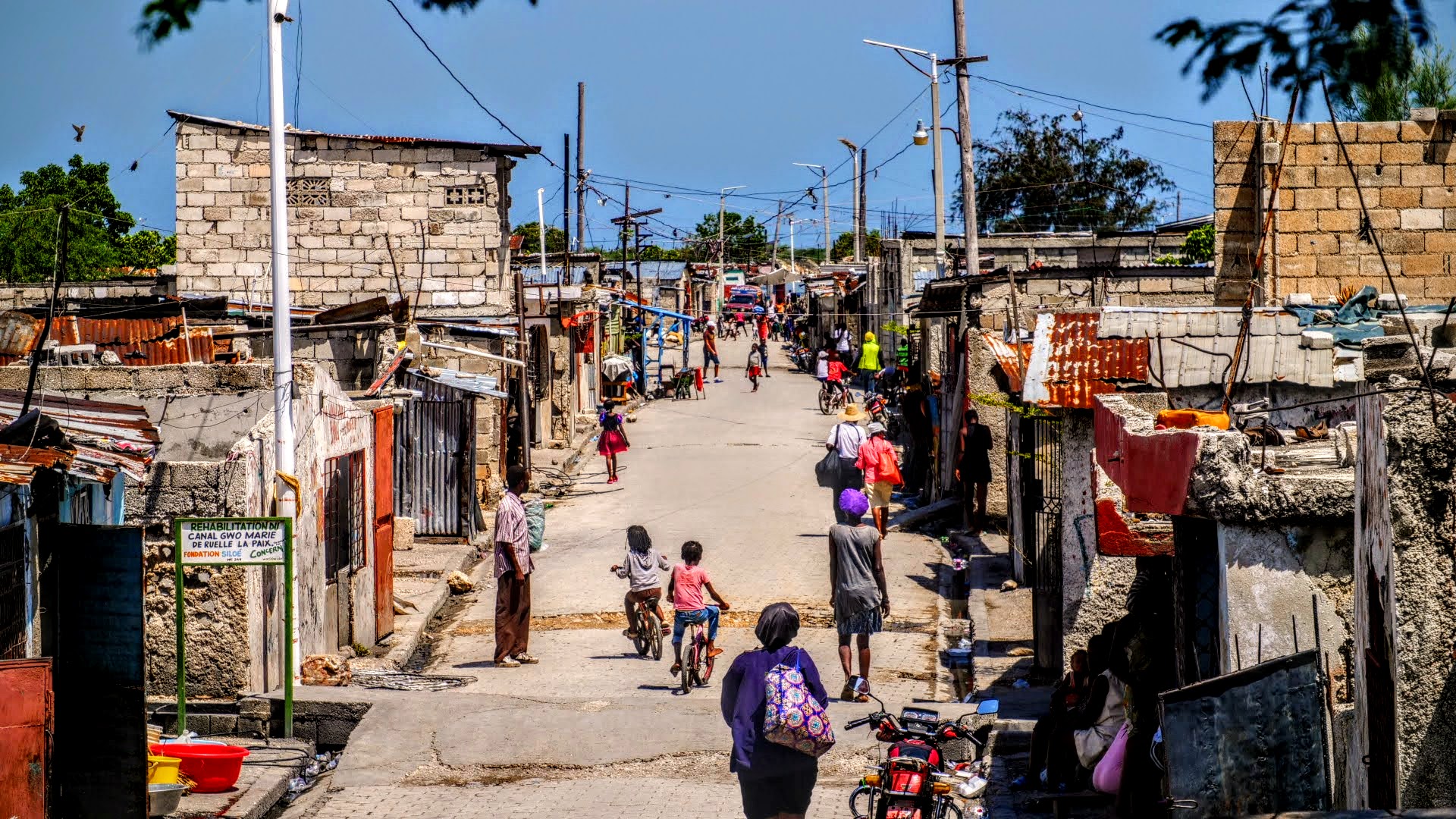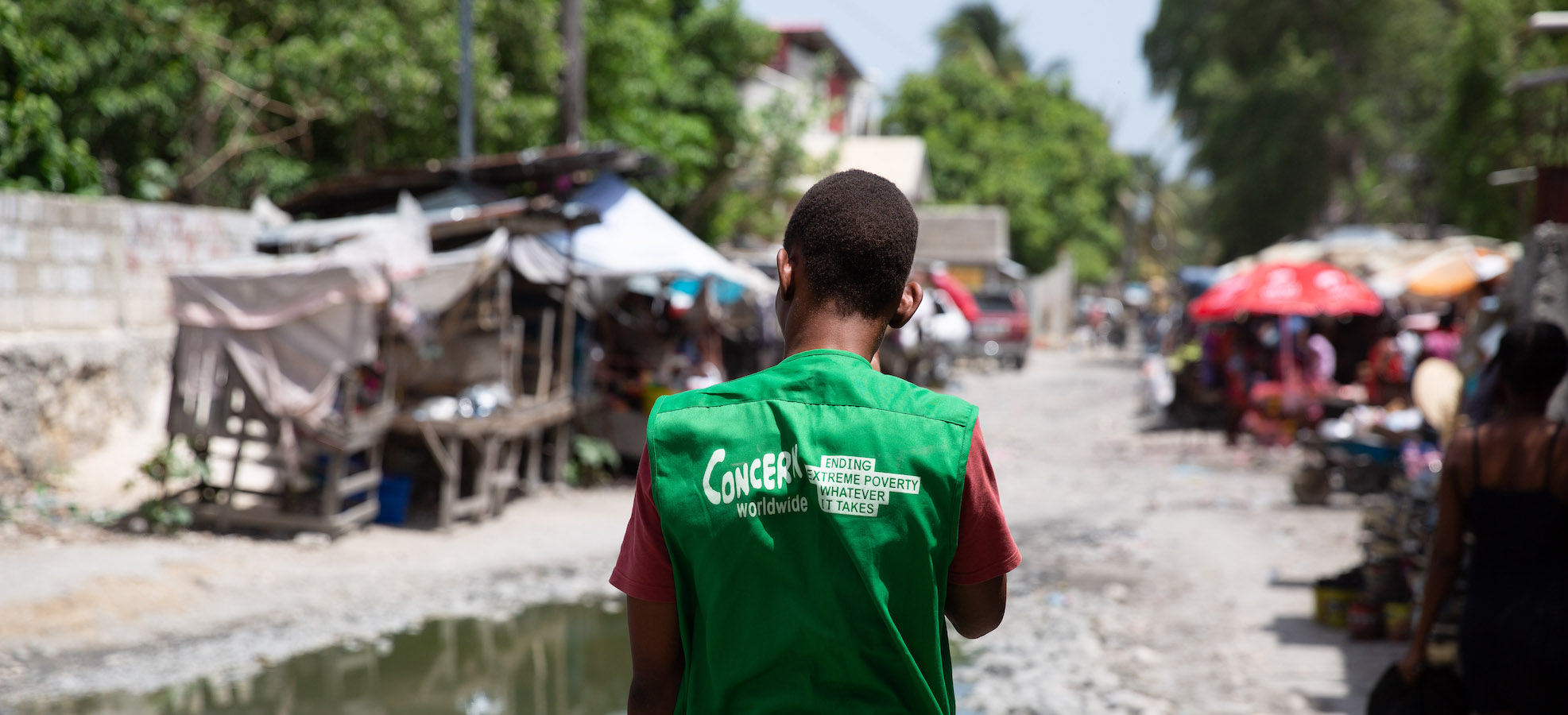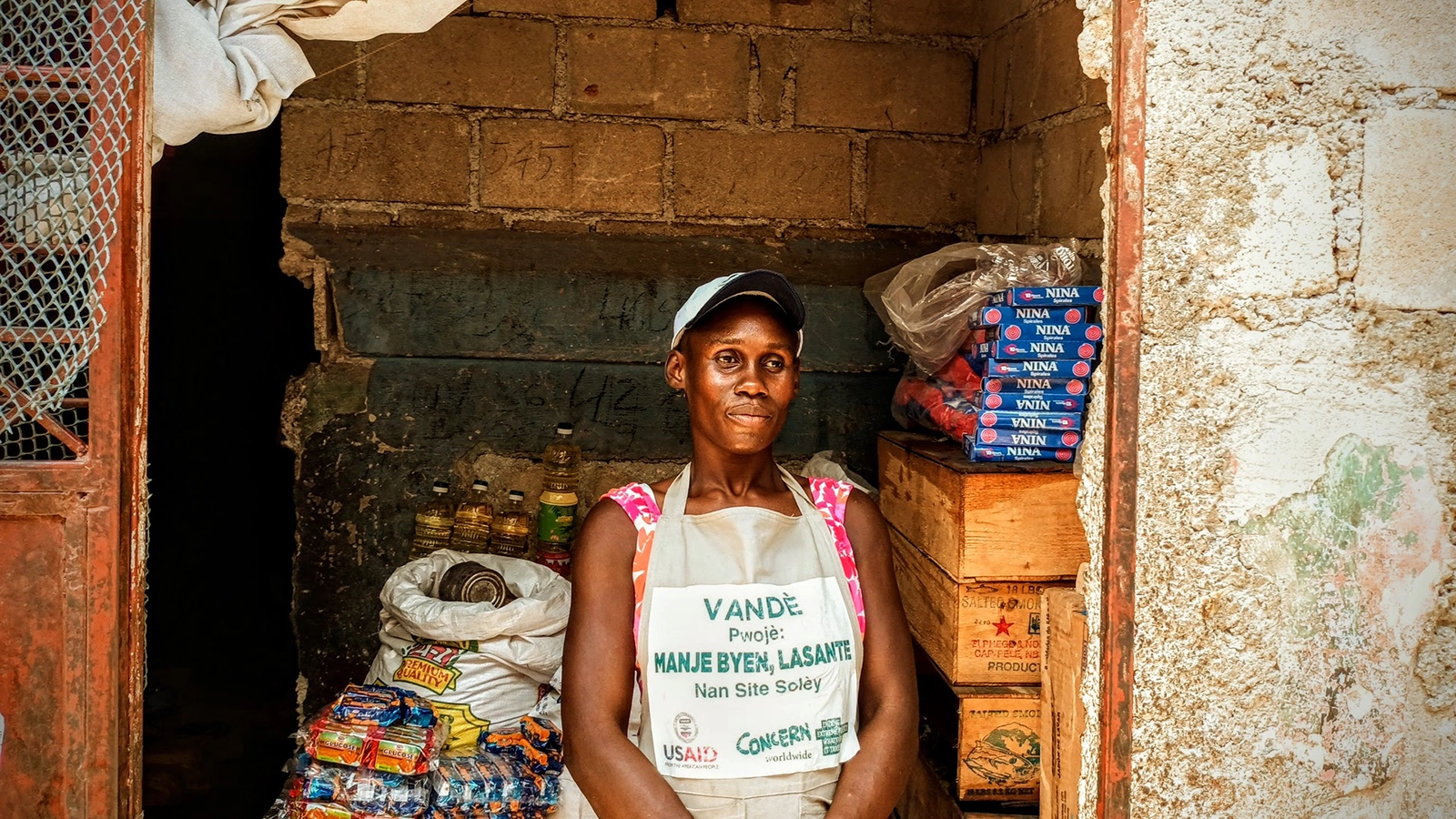While Haiti may not be a fixture of headlines in 2022, a crisis of violence is unfolding in the capital of Port-au-Prince.
A year ago, Haiti was in the news after a devastating 7.2-magnitude earthquake killed at least 2,248 people, damaged or destroyed over 137,000 buildings and left 650,000 people in need of assistance. Just weeks earlier, the country was rocked by the assassination of the Haitian president. But while Haiti’s protracted humanitarian emergency may not be a fixture of headlines today, another dimension of the crisis is unfolding.
In the last year, gang violence in the capital Port-au-Prince has spiraled ferociously. Cité Soleil, a sprawling impoverished commune located within the capital, is at the center of this eruption of violence. The most recent wave of conflict in July this year resulted in widespread death, rapes, property damage, communities fleeing violence, and disruption of food, water, and fuel supplies.
Behind the numbers and stats are real people and a large youth community, whose daily lives are overwhelmed by insecurity and conflict.
Violence in Haiti: The current situation
In July 2022, clashes between rival gangs vying for territory in Cité Soleil intensified. The sound of constant gunfire permeated the commune, with one community member saying: “The bullets go in all directions in the neighborhoods, they know almost every little corner, corridor, and street while leaving people in mourning and desolation.”
Between July 13 and 17, an estimated 185 people were killed — some gang members, many innocent people caught in the crossfire. Sixteen cases of rape were reported. In addition, 231 houses were burned, while an estimated 1,465 people fled the area in an attempt to seek safety. According to a questionnaire shared to Cité Soleil residents by community facilitators, 91% of people confirmed that members of their immediate community had been affected by the ongoing violence.
This level of conflict is unthinkable for families and young people trying to go about their daily lives, but the threat of gunfire is just the start of their worries.
“Mentally and physically, people are not living. We are so traumatized. People are being hit by stray bullets. Bullets are falling into people's yards.“ — Cité Soleil resident
Another threat on the rise
The uptick in violence has led to Cité Soleil largely being cut off from services its residents desperately need. Access to basic health services has been restricted due to the spike in violence, turning the already existing problem of rising malnutrition rates in children into a crisis. Figures from UNICEF in early August estimated that one out of every 20 children living in Cité Soleil is at risk of dying from severe acute malnutrition, with approximately 20% of children under the age of five suffering from severe or moderate acute malnutrition.
This danger is made even worse by the difficulties in accessing food and water. Prior to the spike in violence, hunger in Haiti was already a huge problem, with 4.5 million Haitians suffering from acute food insecurity. This is caused by many factors: an ongoing economic crisis, soaring inflation, the effect of the conflict in Ukraine on global food prices, and the fact that 70% of goods in Haiti’s stores are imported. Food prices have soared in Haiti by an estimated 50% in just one year. Back in March 2022, the World Food Program’s country director for Haiti, Pierre Honorrat, warned that the food insecurity situation “can only worsen if we don’t support Haiti.”
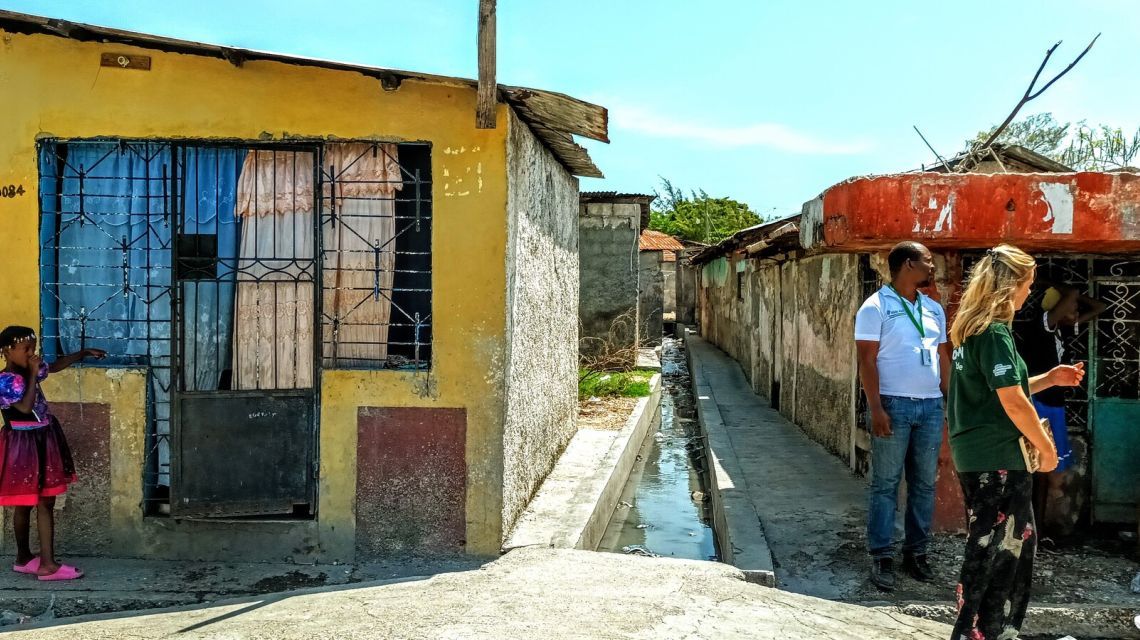
Unfortunately, Mr. Honorrat’s prediction has come true. Cité Soleil is densely-populated and extremely low-income. Residents in particularly isolated areas, like the town of Brooklyn, rely on trucks to deliver food, drinking water, and fuel. However, with the commune under siege from gangs, this vital method of delivery has been cut off, leaving communities contending with hunger and thirst as well as the very real threat of violence. For a family already struggling to feed their children, this new threat could be devastating.
In September, a lack of access to fuel ramped up uncertainty and violence for Haitians. Prime Minister Ariel Henry said fuel subsidies would be eliminated, causing prices to double, and leading to gang leaders digging trenches to block access to Haiti’s largest fuel terminal. UN Special Representative Helen La Lime summed up: “An economic crisis, a gang crisis, and a political crisis have converged into a humanitarian catastrophe.”
“Like many young people, I am affected by conflict. It's getting out of control now. Many people are living with trauma. The bullets make us stressed. We are afraid of being shot by a stray bullet.” — Cité Soleil resident
Alive, but not living
For young people in low-income areas like Cité Soleil, gangs can often seem like the only option for a means of survival, leading to a vicious cycle of poverty, conflict, and fear. But with young people making up much of the population of the commune, their efforts for peace are key to building a safer future for Port-au-Prince.
In Cité Soleil, Saint Martin, and Bel Air, Concern Worldwide — along with local NGOs Lakou Lape and Sakala and with financial support from the UN’s Peacebuilding Fund — runs a program called “Seeds of Peace: Haitian youth committed to building a better society.” The program serves three of the most densely populated and conflict-prone areas of Port-au-Prince. On a recent trip to Haiti, Concern staff members spoke with some of the Seeds of Peace participants who are advocating for peace in their communities.
“Nobody respects the right to live,” said one Seeds of Peace participant. “Some people have nothing at all to do with the conflict, but they go on to the street and they die.”
“Conflict affects the life of the community,” added another. “When armed groups fight, people are forced to live in conditions they could never have imagined, they are living in the street in such bad conditions. If I was talking with world leaders, I would say: ‘Rethink this. We cannot live in this system. Stop giving people guns and give them opportunities to live.’
“And to the UN I would say, ‘Focus on the Haitians’ situation, because it is getting worse day to day.’ People cannot live in this country. We would like them to take some measures to tackle the insecurity right now.”
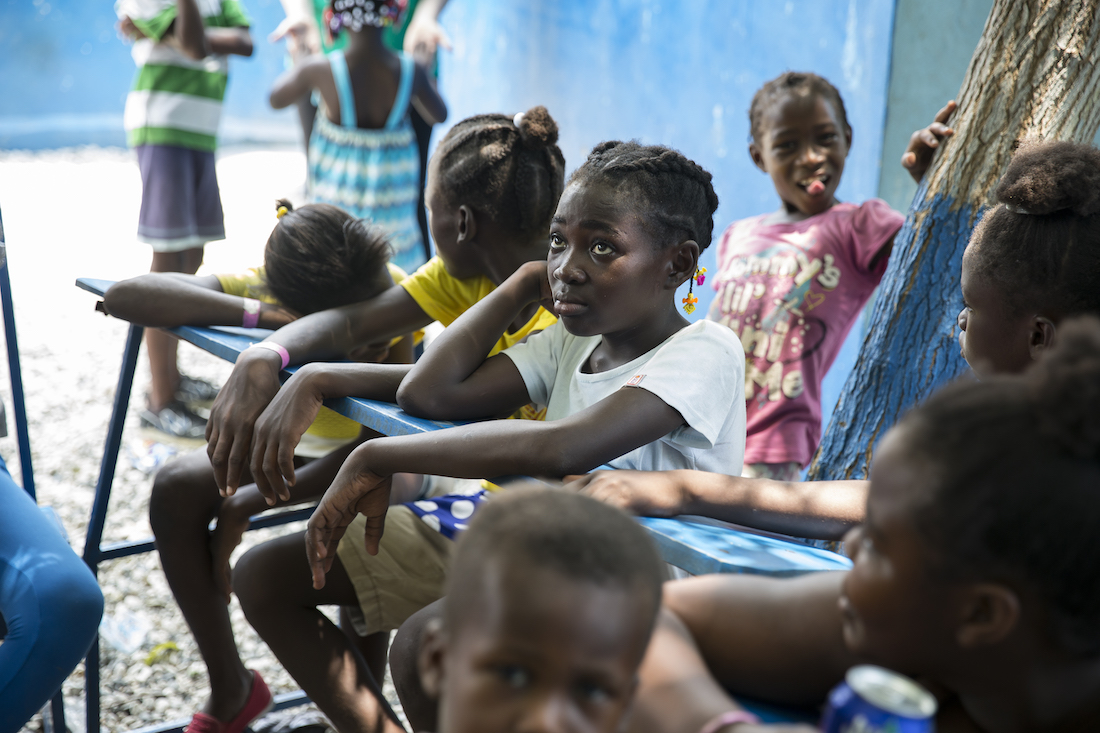
A third noted that this new wave of violence is having an impact on Haiti’s youngest: “The conflict between areas changes the attitude of youth. Kids fall into a cycle of violence. It makes them adapt to violence, to even like violence because it’s the only way of life they know.”
“Cité Soleil wasn’t always like this,” said another. “We need it to go back to the way things were before, so that it can be a place where we can do activities, where we can sit down in peace and have peace of mind.”
Concern's work in Cité Soleil
Concern Worldwide is responding to the immediate needs of those affected by the current crisis in Cité Soleil with water distribution and psychosocial support. Through other existing programs in Cité Soleil, Concern’s response will also meet the immediate food needs of those most affected.
But our work goes deeper: We have worked in Cité Soleil for over a decade and are committed to staying with these communities through their darkest days.
“Seeds of peace: Haitian youth committed to building a better society” is one program designed to address the root causes of gang-related conflict in Port-au-Prince. The two-year program aims to build positive, non-violent leadership among young women and men, and to strengthen links in the community. It also aims to reduce the grip on and the attraction of gangs to young people by providing them with tools so that they can access alternatives, while raising awareness among gang members about protection and their participation in a development process geared towards peace./
